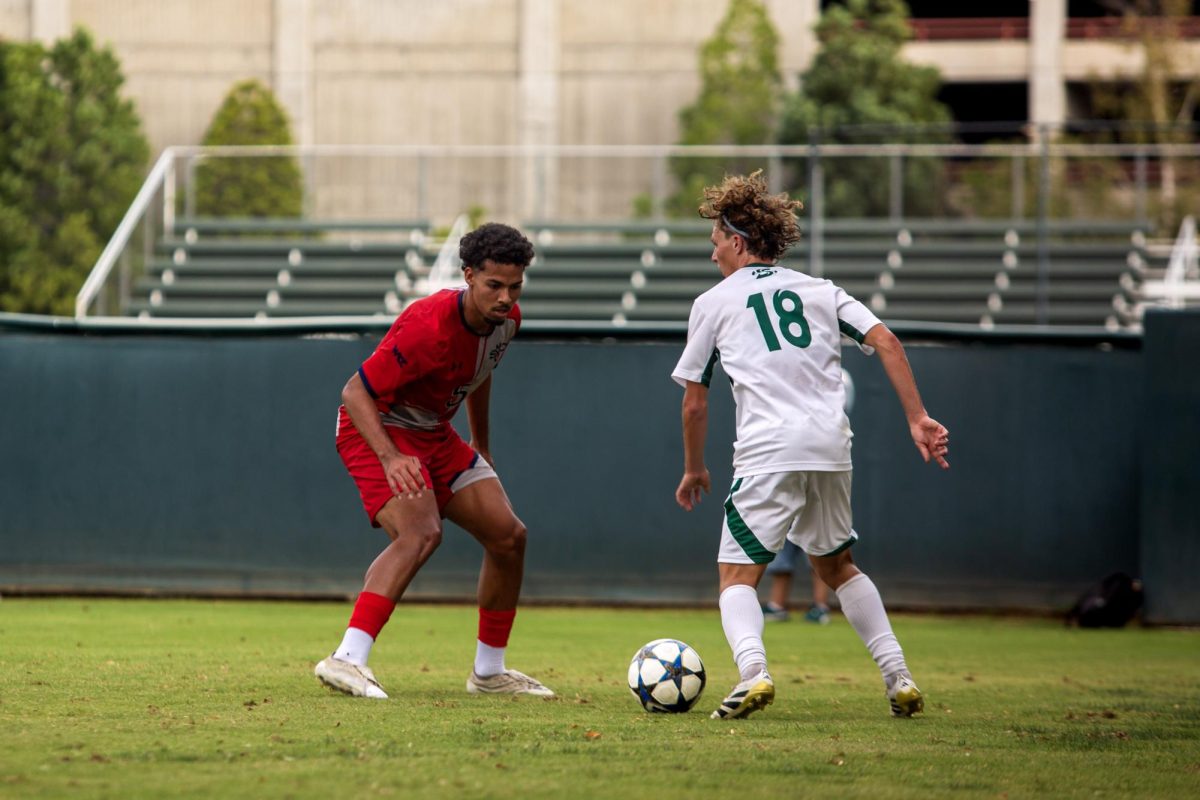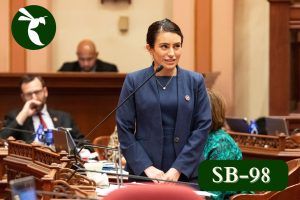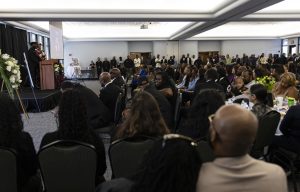Teams fail to pass test
May 16, 2008
Sacramento State’s Intercollegiate Athletics Department adopted several new policies after 3.35 scholarships were taken away from all sports teams.
The National Collegiate Athletic Associated released statistics from the Academic Progress Rate report that ranked Sac State as the school with the most athletic programs penalized of any Division I school in the country. Student-Athlete Resource Center Director Paul Edwards said for two years now, the center has been working with the athletic department to improve the relatively new type of reports.
“We are working on our APR; our coaches and staff are understanding more and more on how it works,” Edwards said. “As a two-time alum of Sac State, I want to see success across the board.”
The new policies require mandatory study hall times for freshmen, transfer and returning students with a GPA lower than 3.0 for men’s basketball and 2.5 for football and track.
All athletes must turn in class attendance forms signed each session by their professors. For a first class missed, an athlete will miss practice; for the second, another practice and missing a third, a game.
In addition to the attendance forms, athletes must present a letter to their professors during the first week of school explaining what days they will miss due to travel. Bi-weekly academic progress monitored by coaching staff for men’s basketball, football, golf and outdoor track also lets coaches know how their athletes are doing in their studies.
Men’s baseball, basketball, football, golf, indoor and outdoor track and women’s tennis were all penalized for having scores lower than 925.
The academic progress report doesn’t just mean student athletes are slipping in grades. Two factors affect the reports for each individual athletic program.
The reports are a combination of points. Each student athlete on scholarship represents two possible points. If the athlete maintains eligibility during a semester and returns for the following semester, he or she receives both points. All the points from the team are added to make the report.
The points are tallied for four academic years to see the progress of the program.
Back in November, a committee that examined the reports set a tentative plan to recruit students who will continue to stay at Sac State and maintain eligibility.
Terry Wanless, director of athletics, said coaches and advisers should help student-athletes in their responsibility of balancing academics and athletics.
“After 30 years in the business, organizational skills is the number one skill I’ve seen students lack. You have to spend equal time outside of class for preparatory work,” Wanless said.
The new study hall requirements and consequences for missing class should add to that extra studying time.
In his first month at Sac State, basketball coach Brian Katz took a proactive attitude when discussing his student-athletes’ grades.
“Bottom line: They are here to get an education. If the guy is missing class, he is missing a game,” Katz said.
Wanless said the Athletics Department and the athletes are solely responsible for ensuring that academic success is met.
“We have not blamed anyone else. We believe it is our responsibility with the students-athletes to achieve these academic goals,” Wanless said.
Different athletics programs have lost retention points from constant changes in coach positions. Players often end up leaving the programs too, an experience the football team has encountered.
But Edwards said the team received great assistance this semester from Jaccie Irwin of the Communication Studies Department.
“She met one-on-one, in group settings, and in study hall to discuss study and organizational skills, as well as mentor (student-athletes) in all aspects of their football and academic lives,” Edwards said.
Edwards believes football coach Marshall Sperbeck has brought stability to the team and has the vision to make sure athletes stay and maintain eligibility. He understands students must first be successful in the classroom.
“Coach Sperbeck is trying to balance winning, which will bring in money for more research, and maintaining academically successful students,” Edwards said. Recruitment affects this balance.
For fall 2008, the football team’s average GPA was 2.8, the highest ever for the team in Sac State history. Many people question whether the reports are necessarily an accurate portrayal of academic success in the classroom.
Sac State’s athletics department was penalized in seven sports, the most of any Division I school in the nation. In contrast, San Jose State lost 12.17 scholarships in five sports, while Sac State only lost 3.35.
Erica Violet, sophomore interior design major and track player, said many athletes don’t think the reports are fair.
“Our grades are something our coaches talk to us all the time about. (But) we lose points for people who don’t graduate and it affects us. There is only so much you can do as an individual,” Violet said.
Geoff Warner, junior criminal justice major and football player, said a solution should be implemented to keep students more focused on studies.
“Obviously, with seven programs penalized, there is an issue that needs to be addressed,” Warner said.
While student-athletes must maintain their own grades, Warner said cooperation from faculty helps to relieve pressure.
“I think sometimes professors don’t understand the travel demands, lifting schedules, practice schedules and extremities associated with being an athlete,” Warner said.
Wanless believes two statistics show that Sac State athletes are academically on the right track. The graduating rate of athletes from the eligibility program is 80 percent. Out of those athletes who choose the fifth year scholarship option, 92 percent graduate.
“While we are not happy with the (report) situation, we are confident the programs set in place will move us forward in the right direction,” Wanless said.
Chloe Daley can be reached at [email protected].
























































































































